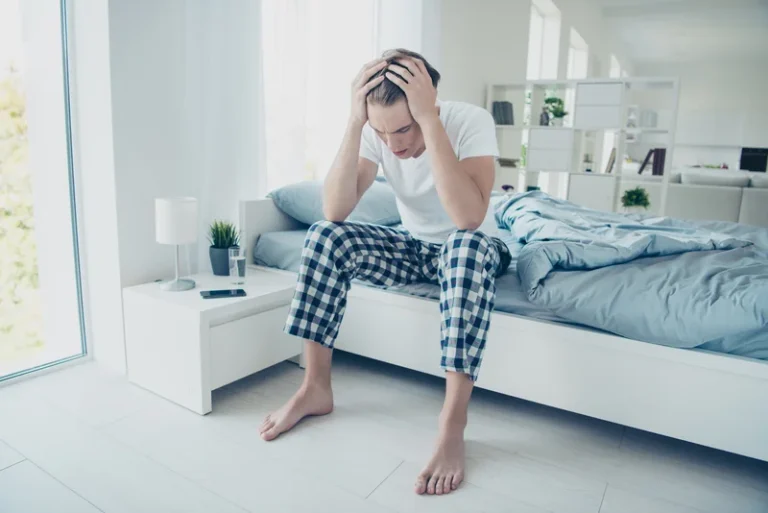12 Ways to Relax After a Long Day

Research studies have shown that those who get the right amount of sleep feel happier, healthier and safer. Commonly, when you’re stressed, the body’s tendency is to crave for high calorie, high sugar, high fat foods. Now the problem is… if you’re used to eating these foods, like they’re your comfort food, you will crave for these even more. Another fascinating result of regular exercise is that it gives your body the opportunity to practice responding to stress. If your week has left you feeling overwhelmed and run down, give yourself the gift of a good night’s sleep. Switching up your routine can help you step out of work mode and into relaxation.
- Focus instead on how to shrug off stress and enjoy your life when you’re not at work.
- Enlisting support can also entail having someone to gently remind you to refocus your thoughts and energy if you start getting bogged down by stressful thoughts of work.
- Just as it helps children relax and go to sleep when they have a bedtime ritual, having a post-work ritual is a great way to help yourself unwind after a stressful day of work.
- By Elizabeth Scott, PhDElizabeth Scott, PhD is an author, workshop leader, educator, and award-winning blogger on stress management, positive psychology, relationships, and emotional wellbeing.
- Mentally counting everything you have to be grateful for can not only make the time pass but can get you into a more positive frame of mind.
Ways to Relax & Unwind
A catnap of around 20 minutes should get you some much-needed stage 2 sleep, which enhances alertness and boost your mood. Here’s a complete guide to which how to destress after work essential oils work best for stress. Make sure that you’re realistic about how much you can get done in a day, and try not to overload yourself.
Benefits of relaxing
Now that you’ve got some practical tips up your sleeve it’s time to put what you’ve learnt into action. According to Dr J. Kip Matthews, a sports and exercise psychologist, regular exercise allows your body to streamline communication between the systems involved in the stress response. That’s why the less active we are, the more challenged we are when dealing with physical and emotional stress. If you want to keep it simple, breathe in for the count of four and breathe out for the count of four.
Do a body scan.
- Those thoughts you push aside when watching TV or making dinner for your family always seem to pop up as soon as you try to fall asleep.
- As you can imagine, thinking about unfinished tasks while stressing about potential future ones makes it impossible to relax your racing mind.
- If you’re interested in jogging, the Brooks Ghost 14 sneakers won last year’s SELF Sneaker Award for best road-running shoe for everyday runs.
- Consider using both types of mental practice during your recovery days.
- Overall, while taking a warm shower may not be a cure-all for stress and anxiety, it can be a helpful tool for promoting relaxation and improving your overall well-being.
- A comfort food may help you fight stress when it’s already there.
Learning how to relax can help keep a positive outlook in life, concentrate better, and reduce the chance of health challenges. Using other relaxation techniques can also help you successfully practice mindfulness. This could be guided imagery, yoga poses, essential oils, or mindfulness meditation. You can actually be activating your mind and causing it to become stimulated rather than cueing it to begin the relaxation process.

On your rest days, do light exercise such as walking or cycling at a slower pace. Use these quick tips to turn around a stressful day and make the most of what’s ahead. Whether it’s impending deadlines for school or work, a packed to-do list or an argument with a loved one, everyone experiences stress from time to time. How you handle the stress is what makes a difference, and your response can impact the trajectory of the rest of your day and week. Working at a lower intensity will help increase recovery from your previous workout by increasing blood flow to your muscles and tissues.

- Working at a lower intensity will help increase recovery from your previous workout by increasing blood flow to your muscles and tissues.
- Unwinding after work can help you leave behind the stresses of the workday and relax.
- Engage in creative expression without decision-making or problem-solving tasks.
- One simple way to recovery faster is by designing a smart workout routine in the first place.
Research from 2018 suggests this can have a surprisingly powerful effect on mood. Yoga, tai chi and meditation all recognize the healing power of the breath, and science has shown that controlled breathing can help manage stress. To calm down, take slow, deep, measured breaths that swell your abdomen rather than your rib cage. There are going to be days when negative thoughts and guilt creep in or when you opt for numbing out or escapism instead of something you know works better. In fact, there are probably going to be a lot of days like that, and it’s okay.

Your body has an amazing capacity to take care of itself if you allow it some time. From flip-flops to Crocs, slipping on a pair of recovery https://ecosoberhouse.com/ shoes can help you start to relax after a workout. Another way to unwind and speed up recovery is to chill out in a massage chair.
